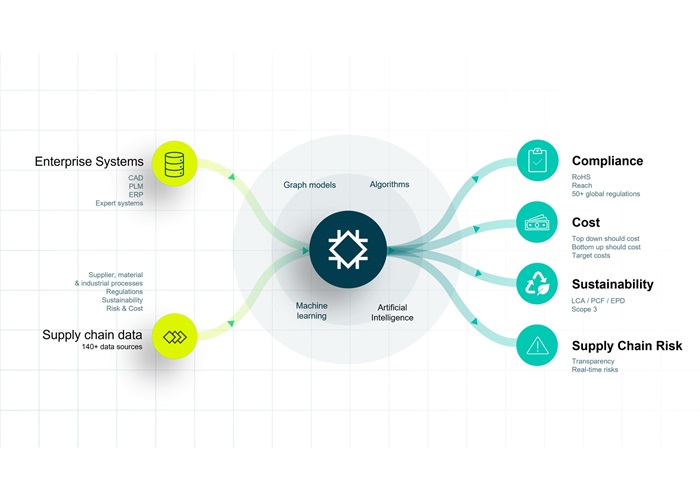-
How Two Technical Attributes Can “Future Proof” Your EHS&S Software
Blog SponsoredDoes your company have a plan to adapt to changes in regulatory expectations and shifting priorities? Will your compliance software interfaces and reports still make sense next year? Learn which technical attributes to look for when choosing EHS&S software and how they enable organizations to flex to unforeseen growth and uncertain regulatory demands. -
Incorporating Health Risks into Your Sustainability Strategy
BlogDr. Natalie Egnot, Project Director at Stantec, shares her insights on how taking a more comprehensive approach to considering health risks, opportunities, and impacts can benefit both your company and its stakeholders. -
EU Omnibus Package: Key Takeaways & Impacts on CSRD
Blog SponsoredOn Feb. 26, 2025, the European Commission adopted the Omnibus Package, which introduced amendments to several key directives and regulations, including CSRD, the EU Taxonomy Regulation, CSDDD, CBAM, and the Invest EU Programme. -
Leading Global EHS Strategy Alignment & Integration
BlogHere are three key things EHS professionals can do to align their work with corporate goals while still meeting regulatory requirements. -
Unlocking the Power of Data-Driven Insights & Analytics for Sustainable Manufacturing
Blog SponsoredSustainability is no longer an option—it is an operational necessity. -
Fostering a Safety-First Culture for Frontline Workers – An Interview with KPA’s Jade Brainard
Blog SponsoredEngaging frontline workers is essential for achieving a safety-first culture. This requires a holistic approach across an organization that prioritizes safety at every organizational level. -
Safety Strategies for Protecting & Engaging Frontline Employees
BlogPreventing high-risk, low-frequency events like SIFs while also managing low-risk, everyday hazards can present a significant challenge for many organizations. -
Sustainability & Finance Teams Can Be Friends
Blog SponsoredThe fastest way to build support for a clean energy program is by actively managing expectations around financial performance. -
How to Engage Frontline Workers in Near-Miss Reporting
Blog SponsoredOrganizations must take a proactive approach to workplace safety by seeking to prevent incidents rather than simply reacting after they happen. -
Navigating the Shifting Regulatory Environment for EHS & Sustainability
BlogAll eyes are on the new Administration and focused on understanding the changes in the regulatory and enforcement landscape. Justin Smith from Beveridge & Diamond PC provides some clarity on the shifting focus areas for EHS. -
4 Trends to Watch in EHS & Sustainability
BlogTwo months into the new year, one thing is clear: EHS and Sustainability practitioners are surrounded by change. As successful and effective leaders, we, too, need to change, adapt, and learn. Here are four trends to watch in EHS and Sustainability in 2025. -
Using AI in EHS to Reduce Risk
BlogAI has received a lot of attention across different industries, including EHS. While some companies are embracing AI as a competitive advantage, others are wary of it and worried about potential liabilities. -
Operationalizing & Funding Sustainability Projects
BlogFORUM24 presenter Erik Petrovskis reveals two ways to get your sustainability projects funded, the phrase you should avoid using, and what he’s looking forward to most about the Forum. -
CSRD Readiness
BlogFORUM24 presenter Jen Boynton discusses the opportunities and challenges presented by double materiality assessments (DMAs), what many EHS and Sustainability professionals don’t realize about DMAs, and what attendees will gain from attending her session. -
Leading the Transition from Reactive to Proactive Compliance
BlogFORUM24 moderator Stephanie Hilton discusses current shifts in compliance, key challenges when creating culture change, and what attendees will gain from attending her session. -
Tools to Advance Product Sustainability
BlogFORUM24 presenter Doug Mazeffa discusses the challenges presented by Life Cycle Assessment (LCA), surprising ways companies are leveraging product sustainability techniques, and what attendees can expect from his session. -
Developing an Effective Multi-Year EHS Strategy
BlogFORUM24 presenter Chris Milici discusses the importance of multi-year EHS strategies, the common challenges leaders face, and what attendees will take away from his session. -
Actualizing Sustainability: Turning Your Plans into Action
Blog SponsoredToday’s businesses face the dual challenge of meeting rising sustainability expectations while navigating economic uncertainty and constrained budgets. Although the business case for sustainability has long been established, the regulatory landscape places new pressures on companies to fulfil their commitments and deliver on their strategies. How can we make the needle move faster? -
Lessons Learned from Real-Life Climate Successes
BlogFORUM24 presenter Paul Espenan shares the importance of the “why” behind every sustainability project, what people who attend his session can expect, and what he’s looking forward to most about the Forum this year. -
Preparing for Climate-Related Disclosures
BlogFORUM24 presenter Scott Song shares the benefits of taking a proactive approach to disclosures, the first step every company should take, and what attendees will take away from his session.




















